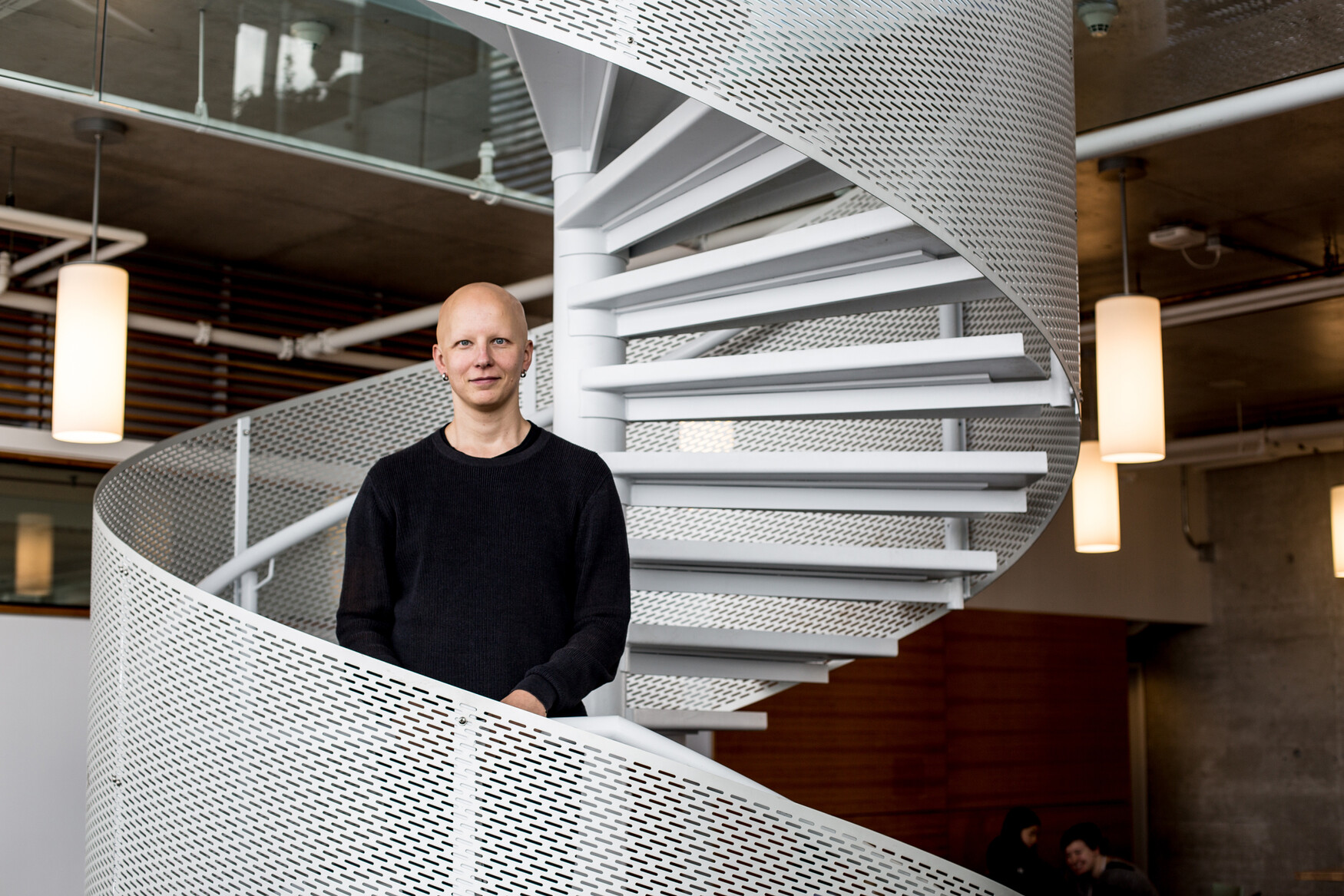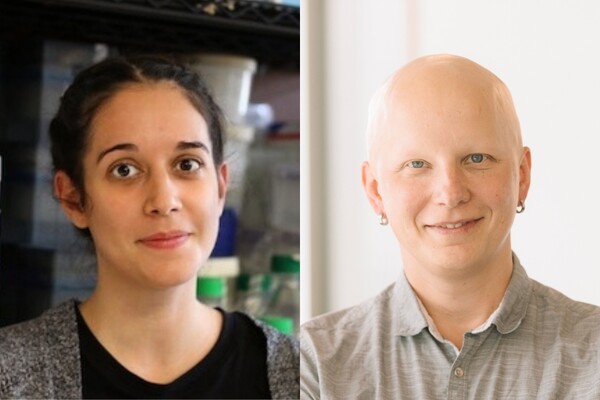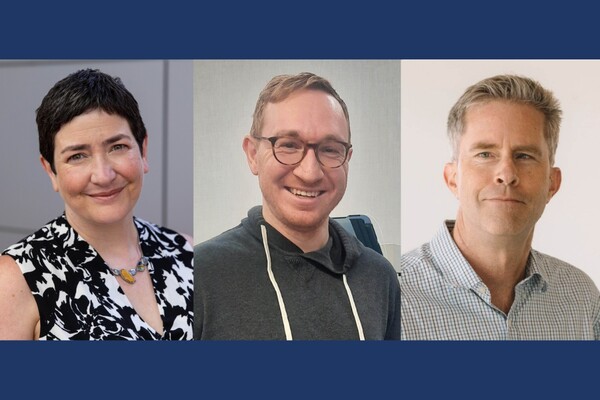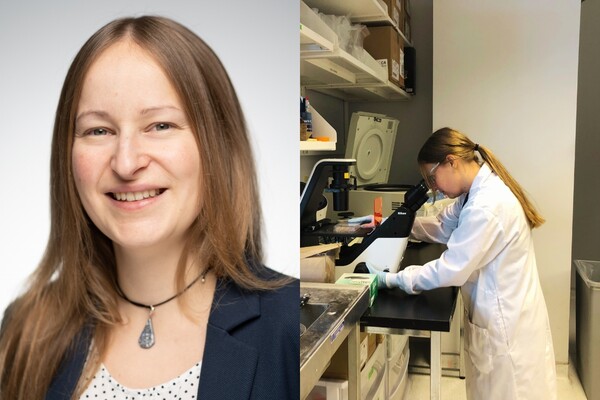Main Second Level Navigation
Meet Donnelly Investigator Mikko Taipale Who Studies the “Birth and Death of Proteins and Anything in Between”

Since joining U of T, Mikko Taipale has built a successful research career and swapped a dream of becoming an astronaut for a pilot license.
Taipale is a principal investigator in the Donnelly Centre for Cellular and Biomolecular Research where he develops new technologies and applies them to the study of cellular proteins on a large scale, also known as proteomics. He once described his research as “the birth and death of proteins and anything in between”. It's a broad description considering that proteins, as gene encoded molecules, make up cells and do most of the work in them.
“When I started my own lab, there was not just one thing that I wanted to do so I started doing a lot of different things,” he says. “Even with the risk of not being an expert in any one of these I’m fine with being relatively good in many things.”
The approach is paying out. Taipale was recently promoted to the rank of Associate Professor at the Faculty of Medicine’s Department of Molecular Genetics. He holds Canada Research Chair in Functional Proteomics and Homeostasis and is a CIFAR Azrieli Global Fellow as one of Canada’s top early career researchers.
“Mikko is really one of those lateral, out-of-the-box thinkers,“ says Taipale’s collaborator and friend Roman Melnyk, a senior scientist at the Hospital for Sick Children. “He’s almost like a hammer looking for a nail in science, agnostic to a specific problem or disease — he just wants to do everything and has an incredible knowledge base.”
At the start of the coronavirus crisis, the lab pivoted to exploring how SARS-CoV-2 proteins interact with human host proteins, operating throughout lockdown. But of all life’s disruptions caused by the pandemic, the loss of communal experience of doing science has been the worst for Taipale.
“Who wants to be a scientist without hanging out with people? We can do pretty much everything remotely but we’ll see what effect the lack of human interactions will have for science in the long term,” he says.
A close collaboration with Melnyk and Jean-Philippe Julien, also a senior scientist at SickKids, with whom he played hockey for the Faculty of Medicine’s team The Flying Puckheads before the pandemic, helped Taipale turn a side project into a major discovery of how pathogens gain entry into host cells. Their findings were recently published in the top biomedical journal Cell, shedding light on the mechanism by which bacterial proteins, but also those of viruses including coronaviruses, evolve to attack diverse organs in the body.
It’s just as well that Taipale did not get to fulfill his childhood dream of becoming an astronaut where prolonged social isolation is the norm. Holding a PhD in genetics, the Finnish native applied to the European Space Agency’s last call for astronauts in 2008 and was among fewer than 200 candidates - whittled down from 10,000 applicants through rigorous selection process - when his luck ran out. He went back to research, completing postdoctoral training at the renowned Whitehead Institute for Biomedical Research in Cambridge, Massachusetts, and joining the Donnelly Centre as Assistant Professor in 2014.
“The Donnelly Centre is a fantastic place for building a diverse research program,” he says. “We have a lot of collaborations with experts across different fields not only in the Centre and at SickKids but also at the Lunenfeld-Tanenbaum Research Institute. It would not work unless you had great colleagues and good environment.”
For Taipale, one of the most exciting things about science is entering new fields. He recently began exploring a new way of discovering a protein’s ability to turn on or off gene expression. Most methods deduce this from that protein’s interaction with factors whose cellular roles are well established. Taipale’s approach forces proteins to interact with each other in a way where gene activation or silencing serves as a read out. They tested thousands of human proteins this way and discovered new regulators of gene expression that are relevant to cancer and that can also be employed as powerful new tools for genetic engineering.
Having made his home in downtown Toronto, a short distance from the city's downtown airport, Taipale fulfilled his childhood dream of learning to fly, obtaining a private license in 2019.
“Flying is a lot of fun, and landing on Toronto Island—one of the most remarkable airports in the world—is amazing.”
His pursuit of new projects in science and life was in no small part inspired by his late mentor and pioneering biologist Susan Lindquist, whom he worked with at the Whitehead.
“Susan was – and she still is – my scientific hero. She was fearless in going against conventional wisdom and working on diverse topics, while being an exceptionally productive scientist and an incredibly kind and generous person,” says Taipale. “She gave me the courage to have a ‘give it a go’ attitude and do random things that I find interesting.”
With an attitude like that, the sky is the limit—both inside the cockpit and out.
Follow us on LinkedIn and Twitter to keep up with Donnelly Centre news.
News



